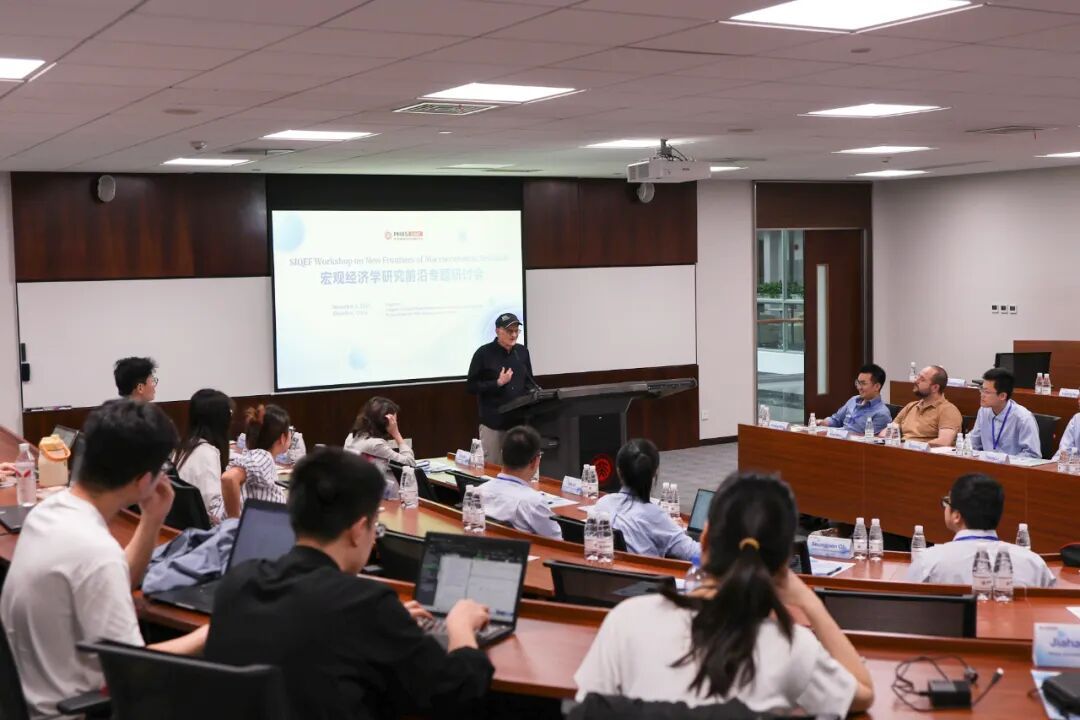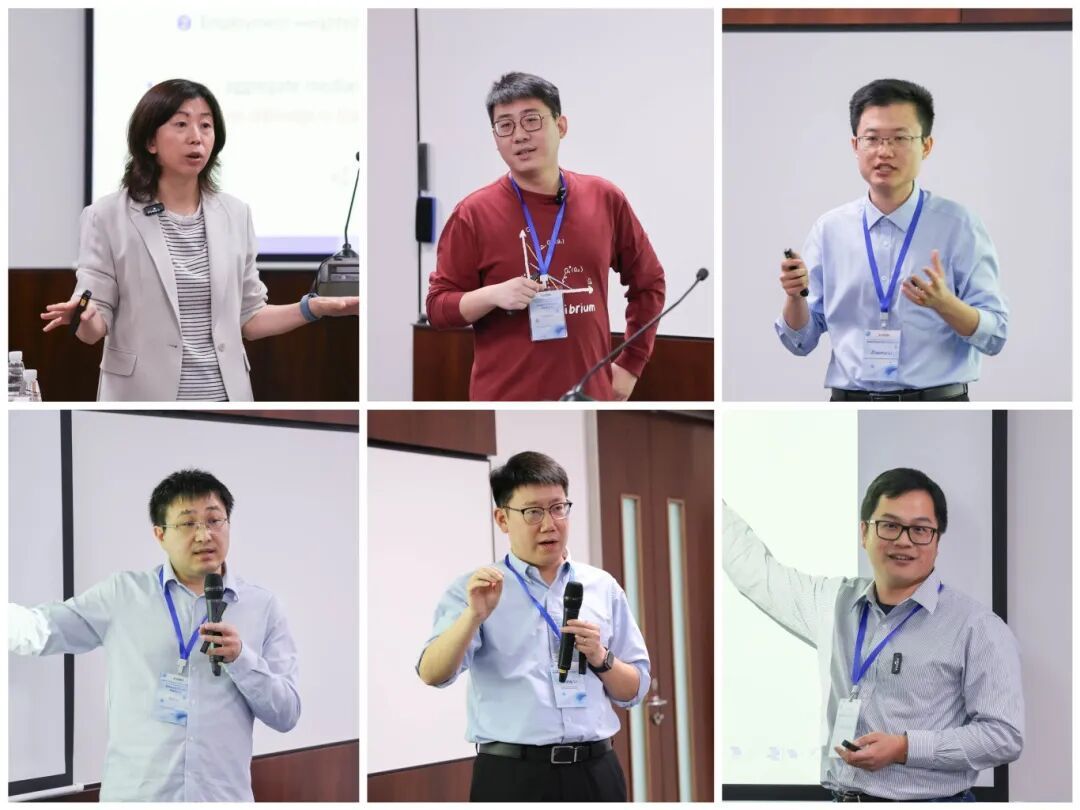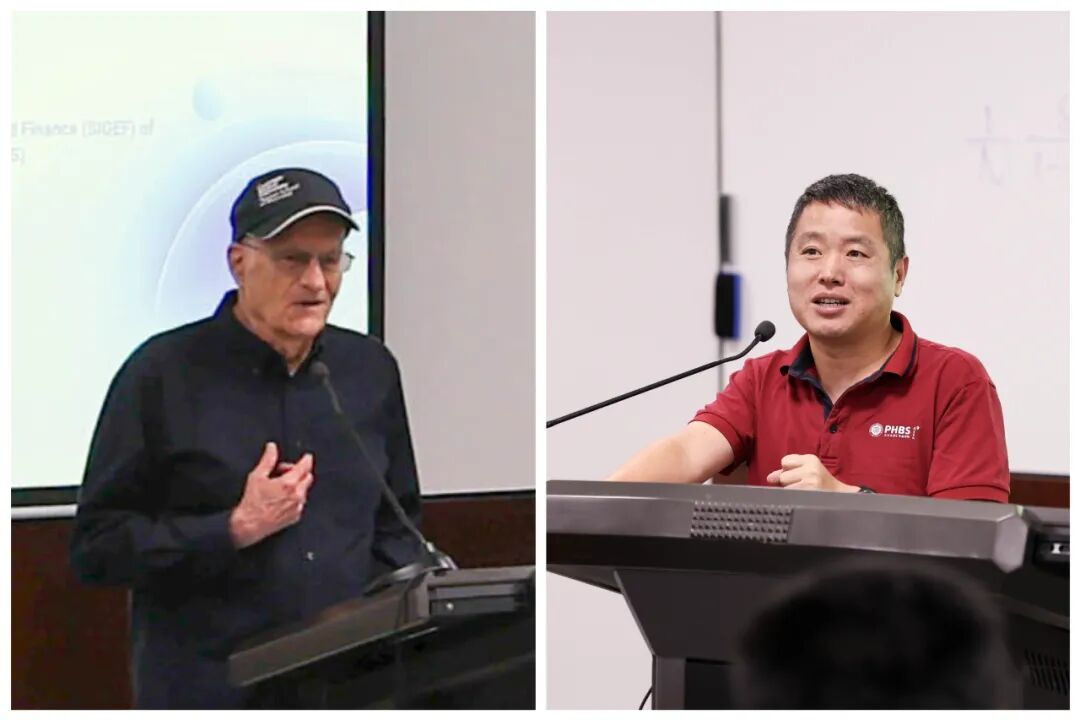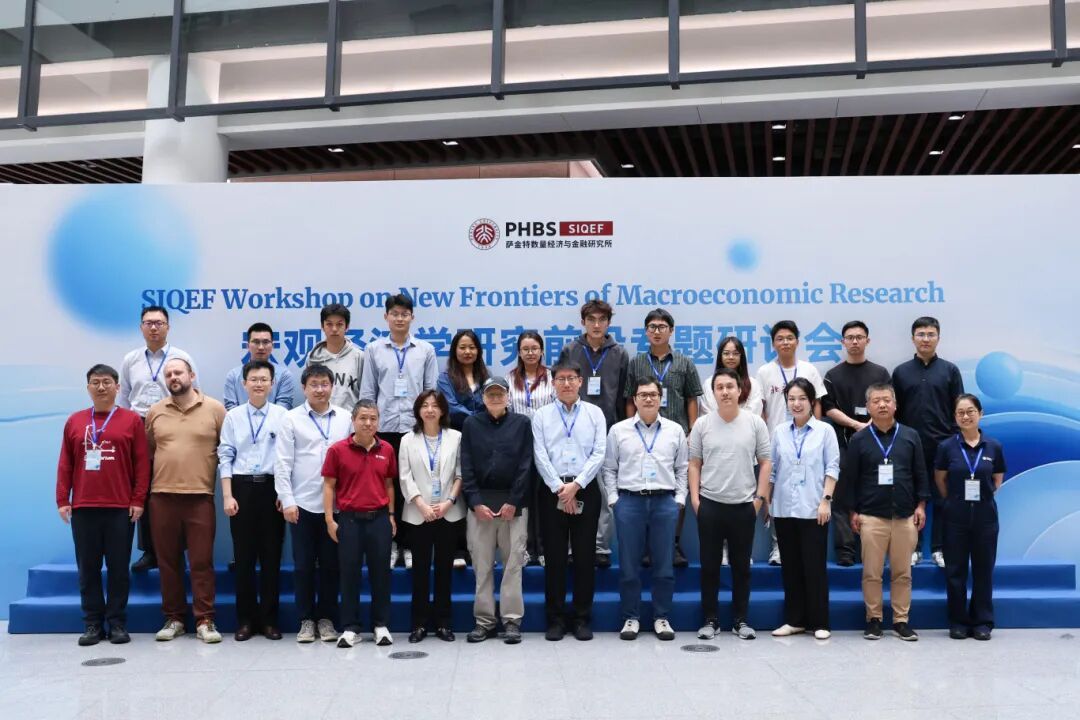On November 3, Peking University HSBC Business School (PHBS) hosted the "SIQEF Macro Workshop: Frontier of Macroeconomics Research," organized by its Sargent Institute of Quantitative Economics and Finance. The workshop brought together leading scholars from the United States, mainland China, and Hong Kong to discuss cutting-edge developments in macroeconomics.

Meeting in Session
Professor Thomas J. Sargent, the 2011 Nobel laureate in economics and honorary director of the Sargent Institute of Quantitative Economics and Finance at Peking University HSBC Business School, delivered the opening address. He expressed his gratitude to the organizing team for their dedicated efforts and shared his anticipation for engaging paper presentations and discussions. Professor Sargent noted that many participating scholars were colleagues he had witnessed grow and collaborated with early in their careers, and it was heartening to see their remarkable achievements. He also emphasized that the emergence of new academic talents vividly demonstrated the vitality and progress within the field.

From left to right and top to bottom: Bai Yan, Qiu Xincheng, Li Zhaorui, Huo Zhen, Li Yiliang, and Fang Min
Professor Bai Yan from the University of Rochester and The Chinese University of Hong Kong presented the collaborative paper titled" Financing from Workers: Can Labor Market Power Mitigate Financial Frictions?" Using comprehensive U.S. Census employer-employee matched data linked to Compustat, the study exploited state-level unexpected disinflation as an exogenous shock within a local projection framework. The empirical results demonstrated that workers at highly leveraged firms experienced persistently slower earnings growth following disinflationary shocks, with no evidence of subsequent compensation recovery. A general-equilibrium heterogeneous-firm model further showed that labor market power could materially dampen the impact of financial distress on firm stability. The participants engaged in discussions on topics including the measurement of expected inflation, its relationship with product market power, and the corresponding welfare implications.
Assistant Professor Qiu Xincheng of Peking University presented the paper, "Perceived Unemployment Risks over the Business Cycle," a collaborative work that challenged traditional models overlooking household risk perceptions. The research employed data from the Federal Reserve Bank of New York's Survey of Consumer Expectations and the Michigan Survey of Consumers, utilizing LASSO regression to construct backcasted measures of perceived unemployment risk. Analysis revealed that while these subjective perceptions could predict subsequent labor market transitions, they adjusted surprisingly slowly to changes in objective unemployment conditions. When embedded within a heterogeneous-agent consumption-savings framework, the model indicated that such belief stickiness moderated precautionary consumption reductions while amplifying consumption adjustments after the fact. The study further examined the heterogeneous nature of these perceptions across demographic groups. The participants held discussions on topics including the implications of full information and prediction methods.
Postdoctoral Fellow Li Zhaorui from the Hong Kong University of Science and Technology presented the paper "A Reference-Dependent Fiscal Theory of Self-fulfilling Price Levels." The study embedded expectation-based reference-dependent preferences into the fiscal theory of the price level, showing that concerns about the real value of government debt could trigger self-fulfilling fluctuations in discount rates and inflation, even with unchanged fiscal surpluses. This framework helped explain phenomena such as asymmetric volatility in inflation and nominal yields. To eliminate such self-fulfilling fluctuations, the authors suggested fiscal authorities adjust nominal debt levels inversely in response to inflation uncertainty. Discussions revolved around the setup of reference-dependent preferences, the mechanisms and refinement of multiple equilibria, and empirical testing of the model.
Associate Professor Huo Zhen from Yale University presented the paper, “Micro Shocks and Macro Fluctuations in the Information Network." His research identified a previously overlooked transmission channel for macroeconomic fluctuations through the unequal distribution of attention among firms. Using detailed browsing logs from the SEC's EDGAR system, the study constructed a comprehensive attention network and documented a highly fat-tailed distribution of corporate attention. The analysis showed that attention-weighted sales growth served as a powerful predictor of key macroeconomic indicators. A theoretical model demonstrated how concentrated attention could amplify idiosyncratic shocks into aggregate fluctuations. The attendees discussed the model's mechanisms, empirical findings, and policy implications.
Assistant Professor Li Yiliang of the University of International Business and Economics presented the paper, "The Causal Effects of Global Supply Chain Disruptions on Macroeconomic Outcomes: Evidence and Theory." The research developed an innovative methodology using global container ship AIS data and spatial clustering algorithms to monitor port congestion in real time. Investigation established that supply chain shocks were a primary driver of global inflation in 2021, while traditional factors played larger roles in 2022. The paper also revealed that monetary policy became more effective in curbing inflation following supply chain disruptions compared to normal conditions. Participants exchanged views on real-time monitoring systems for supply chain risks and the heterogeneity of supply chain shocks.
Assistant Professor Fang Min from the University of Florida presented the paper titled “Short-term Finance, Long-term Effects." Her research addressed a critical gap in understanding firm growth in emerging economies where formal long-term credit remained scarce. The study developed a heterogeneous-firm general equilibrium model linking short-term credit access to long-run capital accumulation. Empirical analysis of Morocco's loan guarantee program confirmed that benefiting firms significantly expanded their assets, employment, and sales while lowering cash ratios. Policy simulations further demonstrated that reducing participation costs could generate substantial productivity gains. Following the presentation, the discussion focused on policy implications and the potential for scaling up credit guarantee programs.

From left to right: Thomas Sargent, Wang Pengfei
In his closing address, Wang Pengfei, Boya distinguished professor of Peking University and dean of PHBS, remarked that the workshop papers demonstrated exceptional depth and were at the forefront of research. He expressed particular appreciation to Professor Thomas Sargent for his active participation and scholarly rigor throughout the event. Dean Wang also highlighted the School's sustained growth in research output, noting the publication of over 100 papers in 2024-2025, including 38 in top-tier journals. He commended the progress made by young scholars and encouraged continued excellence in academic pursuits.

Group Photo of Some Participants
In 2024, the Sargent Institute of Quantitative Economics and Finance at Peking University HSBC Business School was recognized as a "Shenzhen Key Research Base in Humanities and Social Sciences (Funding Category)," which provided support for this workshop. The event not only showcased cutting-edge academic achievements but also provided a high-level exchange platform for scholars from China and abroad. Building on the success of this workshop, the school will continue to collaborate with global scholars to explore frontier issues and inject new momentum into academic research and innovation in the field of macroeconomics.
Source: Sargent Institute of Quantitative Economics and Finance and Public Relations & Media Office
By Li Bingqian, Li Zeyu, Wang Xuyang, Gong Jiahao, Shi Chenglong, Lian Haoyu, Wei Pengguang, and Xiaoban
Images: Gong Jiahao and Youmi


















